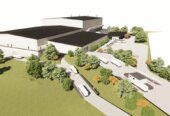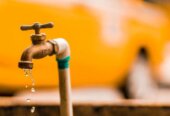Sitting back in Te Awamutu, working through jet lag on the other side of my trip to the Canary Islands, I am thinking about the incredible people I met over the past six weeks.

Janine Krippner
I listened to the experiences of people who lost their homes, and wanted everyone back home to hear what I was learning.
Working in a hazards field, I see over and over again that people who experience disasters don’t expect bad things to happen to them, and that there are simple things we can do to make things easier on ourselves and others. We can be prepared, like knowing what things are important to us in case we need to leave our homes quickly for a start.
I spent time with younger future scientists, some, like me, want deeply to help people when it comes to volcanoes and hazards.
I spoke to people who are actively working to help with challenges that seem far too large, facing personal risk to do the right thing.
I heard stories of people working hard to help others during the La Palma eruption, when their own lives were also thrown into turmoil.
During a crisis or disaster, who we would call “ordinary people” stand up and make a big difference. It’s a good reminder that we are far stronger than we think, and I know a lot of us have needed to hear it lately.
It might seem like so many things are against us, and the news might seem like the world is full of horrible people and events, but it’s important to remember that so many people are out there, and in our communities, working hard to make things better.
A big part of what makes us more resilient against events like eruptions and earthquakes is the strength of our communities.
How we come together in tough times plays a big role in not only how we get through a crisis, but how quickly we recover from it. Knowing who our vulnerable people are and how to help them is part of building our overall resilience. Your actions could be the difference between life or death for your neighbours.
Hopefully our towns don’t have to discover this the hard way, but we can’t cross our fingers and hope for the best. There are those who are planning for the worst in terms of broader emergency response, but there are things we can do for ourselves.
Have a chat with your family about what you do if something like an earthquake hits – have a plan for where to meet. Know who is vulnerable around you. Get first aid certified if you are able to. Have a grab bag ready.
Learning from the lessons of others makes us stronger if we share that knowledge and also do something with it. That is the point of my trips to the Canary Islands, I look forward to sharing more of what I learned with you.

Janine Krippner checks her camera settings while on volcano watch. Photo: Drew Mehrtens.









